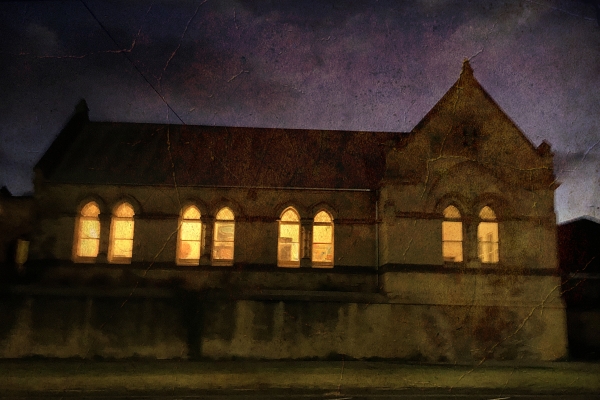Well, Sanctuary has now met for the last time and, in the words of an old prayer, what has been done has been done; what has not been done has not been done: let it be. I am in the process of closing things down, and this will be the final post. We’ll finish off with Psalm 136, Sanctuary-style, developed from your responses to a prayerful exercise (here). Continue reading “Our final post: Psalm 136, Sanctuary-style”
A silver spoon from Richmond, revisited
When Beth first worshipped with Sanctuary, she found it so mysterious that she wrote a poem. It became something we shared at our annual covenanting service. A few weeks ago, she went back to the poem and added the lines in italics. It is a beautiful witness to the transforming power of a small, gentle gathering around the gospel. Thank you so much, Beth, for sharing this with us now. Continue reading “A silver spoon from Richmond, revisited”
Exodus | Agents of joyful rebellion
The story of exodus points to the joy-filled possibilities of civil disobedience. (Listen.)
Have you heard of the Singing Revolution? Day after day, Estonians gathered to raise their outlawed flag, sing their national songs, and peacefully protest Russia’s violent occupation. After five years, a million people were regularly gathering and singing, such a vast, joy-filled experience I can barely imagine it: and eventually, the Russians left. Continue reading “Exodus | Agents of joyful rebellion”
Matthew | Redeeming Joshua
In his encounter with the Canaanite woman, Jesus repeats then repents of Joshua’s policy of no mercy. (Listen.)
Good to know: Jesus’ name is the English rendition of the Greek version of a Hebrew name which in English is rendered Joshua! Yeshua – Iesous – Jesus – Joshua: they’re all the same name.
‘I’m from one of the oldest families,’ he said. ‘We’ve been here since the beginning.’ And with that he effectively erased 60,000 years of continuous living culture, just as his Irish ancestors had tried to erase the people from the land. He’s a lovely guy, straightforward and well-meaning, and totally oblivious to what he had just done. Continue reading “Matthew | Redeeming Joshua”
Romans | While Rhodes burns
The following is an homage to Targum, that is, a translation of scripture interspersed with additional material and commentary. Just as the Apostle Paul quotes and reinterprets scripture for a new context, this reading of Romans 8 quotes and reinterprets his words for our context, during the hottest month on record. (Listen.)
5Those who live according to the flesh set their minds on the things of the flesh
Indeed, they set their minds on fulfilling their own desires, whatever the cost. They treat all people, indeed all creation, as a resource to be extracted, exploited, sucked dry. Continue reading “Romans | While Rhodes burns”
Ezekiel | Dem dry colonial bones
A reflection for white settlers living on stolen land. (Listen.)
It’s tempting to reflect on the bones. The massacre site that is now a fast food restaurant just a couple of blocks from Sanctuary. The bones which still wash up from time to time on the beach near Peterborough. The babies’ bones buried six feet under at the missions. The bones which were scattered throughout the landscape, left to rot in every lake, valley and hollow, left lying in the paddocks to dry out in the sun. It’s tempting to focus on the bones: because our history and geography are studded with other people’s bones. Continue reading “Ezekiel | Dem dry colonial bones”
John | Trans/forming
To encounter Jesus is to invite change. (Listen.)
The crowd was in uproar. ‘It’s him,’ some said. ‘Don’t be stupid!’ said others, ‘It’s just someone like him.’ ‘I’m still me,’ she said, ‘and this is what happened.’ But nobody was listening. Instead, the religious leaders weighed in. ‘He changed at church, but it’s totally against the Bible,’ said some. But others wondered; and so they were divided. Continue reading “John | Trans/forming”
Prayer | Let us pray for one another
Confess your sins to each other and pray for each other so that you can live together whole and healed. The prayer of a person living right with God is something powerful to be reckoned with. (James 5:16, MSG)
I’m sure I’m not the only person who finds these words, or at least the way they can be used, difficult at times. In the public sphere we too often see Christians praying for domination over others, for the eradication of queerness, for violent military successes, for personal wealth, even for the overturning of election results. Even in our own circles, the conviction with which some people insist that they know God’s will and that their prayers must and will be answered is unsettling. Continue reading “Prayer | Let us pray for one another”
Isaiah | On a guinea pig restored and the slow work of healing
Sanctuary’s taking a summer break. This month, many of us are on leave and outside every day, so here’s something from the archives – a summer read from Greg. If this reflection evokes your own prayer, image, artwork, perhaps it could be your contribution to the Lent book (2023 described here).
10am on Jan 1, 2020. The year started abruptly at our house: we awoke to the shock that one of our family’s treasured guinea pigs had escaped. Fortunately, years of wrangling chooks together as a family had stood us in good stead and with the able services of Jindi the ‘Sniffer Dog’ extraordinaire, we swung into action as one. We started working coordinated patterns in the native plant bed, bravely fossicking amongst the bushes and rocks whilst Jindi went to work picking up the scent. Half an hour and a few failed attempts later and we had our ‘treasure’. ‘Blossom’ was found and returned to her friend and wholeness was restored. Continue reading “Isaiah | On a guinea pig restored and the slow work of healing”
Isaiah | Slow reading | The oil of gladness
Last night we marked All Saints with a quiet gathering in the hall. We remembered some special folk, lit a few candles, said a few prayers, and savoured a sweet supper together. Why? Because many of us are grieving the loss of loved ones this year, and God promises comfort to those who grieve. This does not mean that the grief is negated or vanishes, simply that we have companions in our sadness, that there are moments of gladness, and that we can be assured that death does not have the last word. Continue reading “Isaiah | Slow reading | The oil of gladness”









